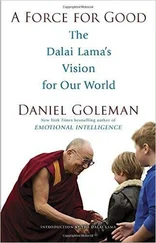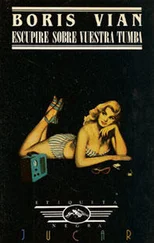Although it is arguable that this history has delivered a new religion (as so many claim), it inflicted upon the human race and human psyche a destruction of a mythological scope, and on these grounds alone this history qualifies for a new creed. Sooner or later, every upheaval ends up in a work of fiction. The most disturbing thing about this particular book, however, is the unbearable and, because of that, paradoxically appropriate excellence of Kis's prose, which provides his moribund metamorphoses with additional beauty.
By virtue of his place and time alone, Danilo Kis is able to avoid the faults of urgency which considerably marred the works of his listed and unlisted predecessors. Unlike them, he can afford to treat tragedy as a genre, and his art is more devastating than statistics. Kis writes in an extremely condensed and therefore highly allusive fashion. Since he deals in biographies, the last bastions of realism, each of his vignettes sounds like a miniaturized Bildungsroman accomplished by a movie-like montage of shrewdly chosen details that allude both to the actual and to the literary experiences of his reader. Here is a typical passage describing the early years of one of his heroes, a Hungarian German, Karl Taube, a would-be member of the Comintern:
… the provincial bleakness of the Middle European towns at the turn of the century emerges clearly from the depths of time: the gray, one-story houses with back yards that the sun in its slow journey divides with a clear line of demarcation into quarters of murderous light and damp, moldy shade resembling darkness; the rows of black locust trees which at the beginning of spring exude, like chick cough syrups and cough drops, the musky smell of childhood diseases; the cold, baroque gleam of the pharmacy where the Gothic of the white porcelain vessels glitters; the gloomy high school with the paved yard (green, peeling benches, broken swings resembling gallows, and whitewashed wooden outhouses); the municipal building painted Maria-Theresa yellow, the color of the dead leaves and autumn roses from ballads played at dusk by the gypsy band in the open-air restaurant of the Grand Hotel.
Like so many provincial children, the pharmacist's son, Karl Taube, dreamed about that happy day when, through the thick lenses of his glasses, he would see his town from the bird’s-eye view of departure and for the last time, as one looks through a magnifying glass at dried — our and absurd yellow butterflies from one's school collection: with sadness and disgust.
In the autumn of 1920, at Budapest's Eastern Station he boarded the first-class car of the Budapest-Vienna Express. The moment the train pulled out, the young Karl Taube waved once mote to his father (who was disappearing like a dark blot in the distance, waving his silk handkerchief), then quickly carried his leather suitcase into the third-class car and sat down among the workers.
The blend of nostalgia and doom in this passage, wryly entitled "Pictures from the Album,” gives a fairly good idea of Danilo Kis's writing technique. If the symbolism of the pharmacist's son abandoning his seat in order to join the workers is a purely prosaic device to indicate this revolutionary-to-be’s predicament, the perception of the father "disappearing like a dark blot in the distance” is outright poetry. With his emphasis on imagery and detail, combined with ironic detachment, Danilo Kis*s obviously poetic prose puts his horrid subject matter into the most adequate perspective by alerting the reader to this prose’s own intelligence. Thus, the reader’s ethical evaluation of the phenomena described ceases to be merely a matter of his distraught sentiment and comes out as a judgment made by his profoundly offended supreme human faculties. It is not that the thought is felt but, rather, that the feeling is thought.
Unlike prose, poetry doesn't so much express an emotion as absorb it linguistically. In this sense, Kis's writing is essentially a poetic type of operation, and the vignettes of which the chapters of his book consist could be read and appreciated separately as short poems. Some passages could be simply memorized. What prevents one from regarding this book as a prose poem, however, is neither its subject matter (which is still out of reach no matter how avant-garde as poetry) nor its typically prosaic coherence; it is mostly Danilo Kis's own undercutting technique, to which he resorts when a vignette approaches real sublimity. All the same, A Tomb for Boris Davidovich is built like a long dramatic poem crowned with that really monstrous, terrifying "rhyme” of cabalistic coincidence in "Dogs and Books," which achieves what the best poetry usually achieves; the metaphysical impact of the last lines that gape, along with their reader's mind, into pure chronos — which is presumably a formula for equating art to human reality.
The standard perception of tragedy, as distinct from a regular existence, is that it is a violation of time. In the case of A Tomb for Boris Davidovich , whose superb prose nearly overshadows the story itself, tragedy almost gets redefined as an occasion for time's high eloquence. A hero-or, more precisely, a victim-suddenly emerges from the reticence of ordinary life as a spokesman of time’s arbitrary opposition to human presence in it. Since the usual incongruity between living matter and the matter of time (normally manifested by death) can be elucidated only by the latter, the description of the tools time employs for such an undertaking (historical events, ideologies, etc.) requires an appropriately lucid condensation of the language. It is a fairly disquieting thought that in Danilo Kis we have a writer whose skills are adequate to those of time itself.
Perhaps the only service a real tragedy renders in leaving its survivors as speechless as its victims is that of furthering its commentators' language. The least that can be said about A Tomb for Boris Davidovich is that it achieves aesthetic comprehension where ethics, fail. Of course, the mastery of language can hardly pass for a safeguard in our enterprising century; but at least it creates a possibility of response, without which people are bound to remain slaves of their experience. By having written this book, Danilo Kis simply suggests that literature is the only available tool for the cognition of phenomena whose size otherwise numbs your senses and eludes human grasp.
A Tomb for Boris Davidovich is a very dark book, and its only happy end is that it was published and now so splendidly translated into English by Duska Mikic-Mitchel. It is surely a strange realm for an English reader to enter, but so it was for the millions and millions who found themselves inside it. Unlike them, an English reader can leave it whenever he likes by closing this book, finished or unfinished. Only the names here are fictitious. The story, unfortunately, is absolutely true; one would wish it were the other way around.
Joseph Brodsky
The Knife With the Rosewood Handle
The story that I am about to tell, a story born in doubt and perplexity, has only the misfortune (some call it the fortune) of being true: it was recorded by the hands of honorable people and reliable witnesses. But to be true in the way its author dreams about, it would have to be told in Romanian, Hungarian, Ukrainian, or Yiddish; or, rather, in a mixture of all these languages. Then, by the logic of chance and of murky, deep, unconscious happenings, through the consciousness of the narrator, there would flash also a Russian word or two, now a tender one like telyatina , now a hard one like kinjal. If the narrator, therefore, could reach the unattainable, terrifying moment of Babel, the humble pleadings and awful beseechings of Hanna Krzyzewska would resound in Romanian, in Polish, in Ukrainian (as if her death were only the consequence of some great and fatal misunderstanding), and then just before the death rattle and final calm her incoherence would turn into the prayer for the dead, spoken in Hebrew, the language of being and dying.
Читать дальше









